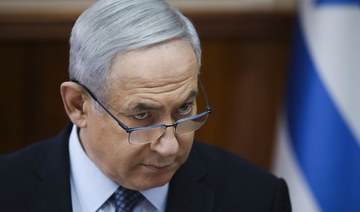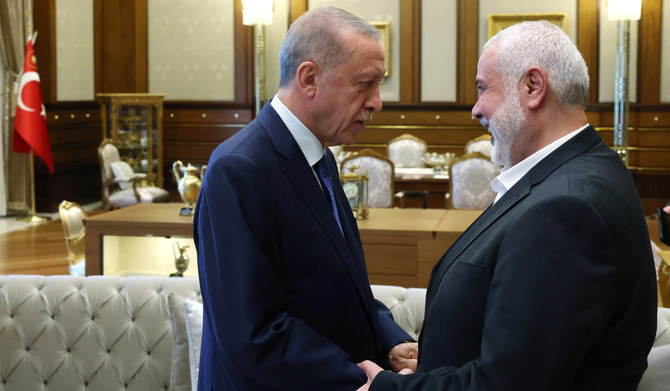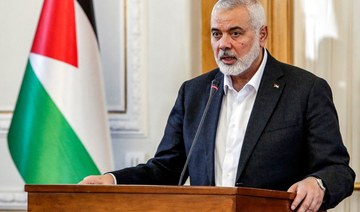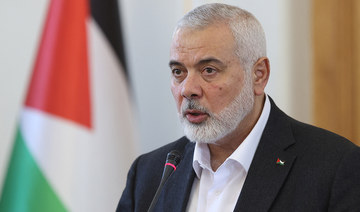AMMAN: Pundits and politicians appear to agree that the assassination of Islamic Jihad leader Bahaa Abu Al-Atta and his wife in Gaza, as well as the failed attack in Damascus against Akram Ajoury was committed to assuage domestic Israeli political tensions.
Prime Minister Benjamin Netanyahu, facing a corruption indictment and possibly about to lose power to opponent Benny Gantz, apparently acted in his own self-interest, disrupting political talks and potentially destabilizing Gantz’ support from the Arab Joint List.
Jafar Farah, director of the Haifa-based Mossawa Center, told Arab News the Israeli attack in Gaza had all but ended the possibility of the Joint List supporting any Israeli government.
“Before the attack, 10 out of the 13 elected members of the Knesset were on board with the idea of supporting, externally, a minority government. Now the number of those supporting this has been reduced, as the Democratic Front for Peace and Equality are opposed to supporting any government,” he said.
Gantz, who apparently was briefed before the attack, has come out publicly in support of Israel’s actions, which killed over 20 Palestinians including women and children.
Michel Oun, Middle East professor at Haifa University, told Arab News that a major reason behind the Israeli attack was internal politics. “If we can use football terms, we were in the last minutes of the game, time was running out on Netanyahu, he had to do something,” Oun said, adding that the attack had ended any possibility of an Israeli minority government with the Arab Joint List supporting it.
“I was always skeptical about this issue even before the attacks on Gaza, because of the paternalistic and racist way Israelis were talking about it in which the very idea of having Arab members of the Knesset supporting a government, even from the outside, was seen as unacceptable and treasonous.”
Merav Michaeli, a member of the Knesset from the Israeli Labor Party, told Arab News that the way Netanyahu used the attack in Gaza was suspicious.
“I saw the chief of staff and head of the secret service standing and talking about the necessity and opportunity that was provided to them. I believe that the Israeli civil service officials are telling the truth, although the attack was greatly exploited and abused politically. The very fact that Netanyahu had to bring these military officials to the press conference shows that half of Israel does not trust him and he had to have them confirm their position,” she said.
Pundits had opposing views as to who would benefit from the stretch of the cycle of attacks with Gaza. “Regardless of politics I hope that the violence ends as soon as possible,” Michaeli told Arab News.



























